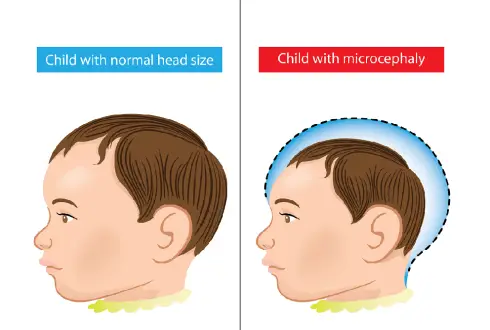Zika is a virus that was first discovered in 1974 in Uganda, in the Zika forest (hence its name). It was released in 2007 when an outbreak of the virus occurred in a group of Islands located in northern Australia, and in 2013 when the virus arrived in French Polynesia.

A pregnant woman can pass the virus to her baby during pregnancy or near the due date. It can be spread by sexual contact. Its dissemination has also been reported through blood transfusions. Outbreaks of Zika have appeared in the United States, Africa, Southeast Asia, the Pacific Islands, some areas of the Caribbean, and in Central and South America.
Most people who get the virus do not get sick; 1 out of 5 people have symptoms. They may include fever, skin rash, joint pain. In general, the symptoms are mild and begin 2 to 7 days after being bitten by the mosquito.
Zika virus disease is a viral infection transmitted by mosquitoes that occurs mainly in tropical and subtropical areas of the world. Other signs and symptoms may include the following:
- Headache
- Red eyes (conjunctivitis)
- Nausea
Most people recover fully. Your symptoms disappear in about 1 week.
Complications

Zika virus infections during pregnancy have been linked to miscarriages and microcephaly, which is a possibly fatal congenital brain disorder. Zika virus can also cause congenital Zika syndrome, which includes these birth defects:
- Severe microcephaly, with partially sunken skull
- Brain damage and tissue reduction in the brain
- Eye damage
- Joint problems, including movement limitation
- Body movement reduced by too much muscle tone after birth
- Zika virus can also cause other neurological disorders such as Guillain-Barré syndrome
Prevention
Up to date, we should know that there is no vaccine against the Zika virus disease.
The Centers for Disease Control and Prevention recommends that all pregnant women avoid traveling to areas where there is an outbreak of Zika virus. If you are trying to get pregnant, talk to your doctor about upcoming travel plans and about the risk of becoming infected with the Zika virus.
If you have a male partner who lives or has traveled to an area where there is an outbreak of Zika virus, the Centers for Disease Control and Prevention recommends not having sex during pregnancy or using a condom during sexual contact.
If you live in or are going to travel to any of the tropical areas where Zika virus is known, these tips can reduce the risk of mosquito bites:
Stay in places with air conditioning or with mosquito-nets. Mosquitoes that transmit the Zika virus are more active from sunrise to sunset, but they can also bite at night. Consider sleeping under a mosquito-net for bed, especially if you are outdoors.
Wear protective clothing. When you go to mosquito-infested areas, wear a long-sleeved shirt, long pants, socks, and shoes.
Use mosquito repellent. You can apply permethrin to clothing, shoes, camping equipment, and the bed net. You can also buy garments made with materials containing permethrin. For the skin, use a repellent that contains a concentration of at least 10% DEET.
When used as indicated, it is proven that mosquito repellents registered with the United States Environmental Protection Agency (EPA) are safe and effective for pregnant women and those who are breastfeeding.
Reduce mosquito habitat. Mosquitoes that transmit the Zika virus generally live in houses and their surroundings and reproduce in standing water that can be found in animal dishes, pots and used car tires. Reduce the breeding habitat to decrease mosquito populations.
Zika virus that is transmitted through blood transfusions
All blood donations are analyzed for the Zika virus. To further reduce the risk of transmitting the Zika virus through blood transfusions in areas where there are no active outbreaks of this virus, it is recommended not to donate blood for 4 weeks if you meet any or all of these characteristics:
- You have a history of Zika virus infection.
- You have traveled or lived in an area with active Zika virus transmission.
- You have symptoms that could indicate a Zika virus infection within 2 weeks after a trip from a zona con virus Zika.

